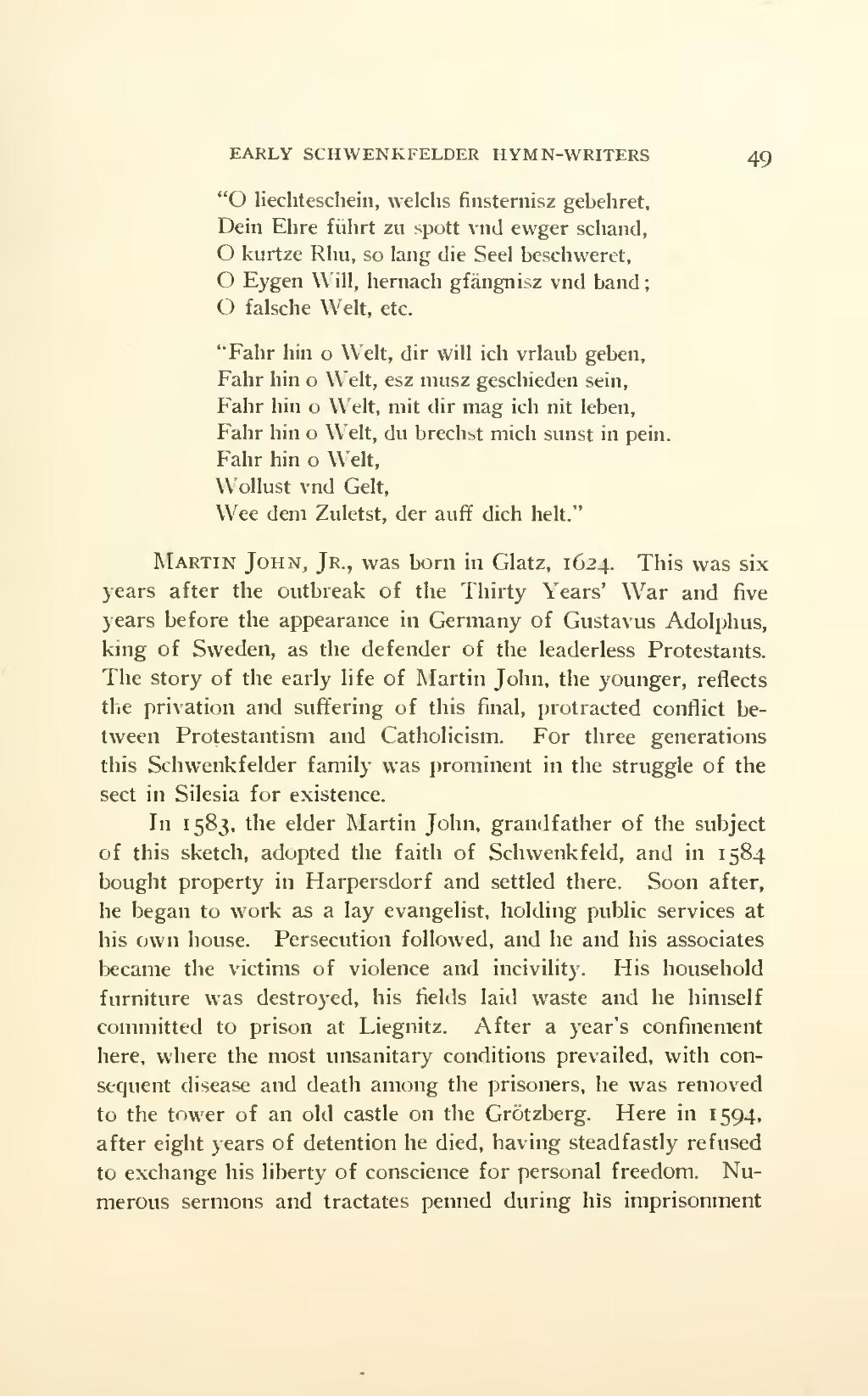"O liechteschein, welchs finsternisz gebehret,
Dein Ehre fiihrt zu spott vnd ewger scliand,
kurtze Rhu, so lang die Seel beschweret,
O Eygen Will, hemach gfangiiisz vnd band;
O falsche Welt, etc.
"Fahr hin o Welt, dir will ich vrlaub geben,
Fahr hin o Welt, esz nmsz geschieden sein,
Fahr hin o Welt, mit dir mag ich nit leben,
Fahr hin o Welt, du brechst mich sunst in pein.
Fahr hin o Welt,
Wollust vnd Gelt,
Wee dem Zuletst, der auff dich helt."
Martin John, Jr., was born in Glatz, 1624. This was six years after the outbreak of the Thirty Years' War and five years before the appearance in Germany of Gustavus Adolphus, king of Sweden, as the defender of the leaderless Protestants. The story of the early life of Martin John, the younger, reflects the privation and suffering of this final, protracted conflict between Protestantism and Catholicism. For three generations this Schwenkfelder family was prominent in the struggle of the sect in Silesia for existence.
In 1583, the elder Martin John, grandfather of the subject of this sketch, adopted the faith of Schwenkfeld, and in 1584 bought property in Harpersdorf and settled there. Soon after, he began to work as a lay evangelist, holding public services at his own house. Persecution followed, and he and his associates became the victims of violence and incivility. His household furniture was destroyed, his fields laid waste and he himself committed to prison at Liegnitz. After a year's confinement here, where the most unsanitary conditions prevailed, with consequent disease and death among the prisoners, he was removed to the tower of an old castle on the Grötzberg. Here in 1594, after eight years of detention he died, having steadfastly refused to exchange his liberty of conscience for personal freedom. Numerous sermons and tractates penned during his imprisonment
